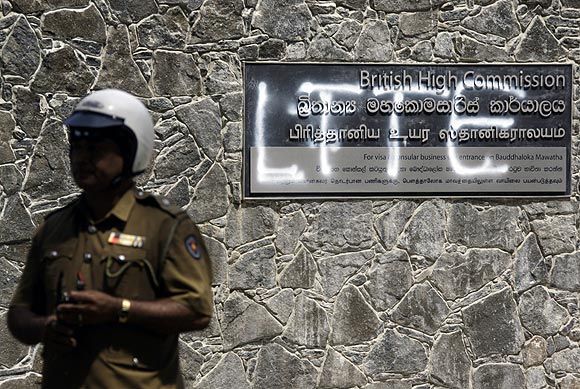The Madras high court has refused bail to two persons, said to be the members of the banned organisation LTTE, who attempted to loot Rs 40 crore lying idle in the savings bank account of a dead man.

Justices P N Prakash and RMT Teekaa Raman, who refused bail to T Keeniston Fernando and K Baskaran, also upheld their extension of detention under various Acts of the land, recently.
Hamida A Lalljee was having an account in the IOB, Mumbai Fort branch, in which around Rs 40 crore was lying unused. This account was not frequently operated.
This came to the notice of the Liberation Tigers of Tamil Eelam, a proscribed terrorist organisation under the Unlawful Assembly (Prevention) Act and they decided to stealthily siphon off the money for the organisation.
Umakanthan, a key LTTE operative stationed in Europe, was closely monitoring the bank account. On his directions, a Sri Lankan Tamil, Letchumanan Mary Franciska, came to India and managed to obtain documents like Aadhaar, PAN and Indian passport in her name.
The petitioners, Fernando and Baskaran, and other accused -- C Johnson Samuel, G Dharmendran and E Mohan -- joined in at various stages of operation to get the money.
They started to create a fake power of attorney as if the deceased Hamida had given it in favour of Mary. Armed with it, they attempted to withdraw the amount from Hamida's account.
However, before they could do so, Mary was intercepted at the Chennai airport on October 1, 2021, with an Indian passport.
Thereafter, she was handed over to the 'Q' Branch CID of the state police, which conducted preliminary enquiries and registered a case in 2021 for offences under the Passport Act, IPC, and Foreigners (Amendment) Act and arrested and produced her before the judicial magistrate-I in Alandur in Chennai, who remanded her in judicial custody.
Subsequently, the 'Q' Branch CID altered the case and added certain sections of the UAPA and filed an alteration report.
Since the UAPA provisions Act were added to the FIR, the case records were transferred from the judicial magistrate court to the court of principal district and sessions, Chengalpattu, which is the designated court for trial under the UAPA.
Pursuant to the transfer of the case, the accused were produced before the court of sessions, Chengalpattu, for remand from time to time.
The 90-day remand envisaged by the CrPC was to expire on December 31, 2021. Anticipating that it would not be possible to complete the investigation before then, the special public prosecutor filed a report under the UAPA for extension of the remand period. The sessions judge examined the report and on January 3 this year, accepted the report of the SPP and extended the remand by a further 90 days.
Thereafter, considering the gravity of the case, the Union government on January 7 entrusted the investigation into the case with the National Investigation Agency (NIA) which re-registered the case. The NIA also arrested the other accused.
Since the special court for exclusive trial of bomb blast cases at Poonamallee has been designated as the special court for NIA cases, records from the principal district and sessions court in Chengalpattu were transferred here on February 16. The NIA completed the investigation and filed the final report on March 29 under the IPC, UAPA, Passport Act and Foreigners (Amendment) Act against six accused, which was taken on file by the special court, later.
Holding the criminal appeals devoid of merits, the bench dismissed them.










 © 2025
© 2025